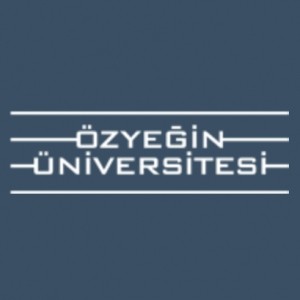Photos of university / #yasaruniv
Electrical and Electronic Engineering at Yasar University offers a comprehensive and innovative curriculum designed to equip students with fundamental and advanced knowledge in the fields of electrical systems, electronics, and digital technology. The program aims to develop analytical, practical, and research skills necessary to address the evolving technological challenges of the modern world. Students are introduced to core courses such as circuit analysis, digital systems, control systems, power distribution, telecommunications, and embedded systems, alongside practical laboratory work that fosters hands-on experience. The curriculum emphasizes the integration of theoretical principles with real-world applications, preparing graduates for careers in industry, research, or further academic pursuits. Students have the opportunity to engage with cutting-edge topics like renewable energy sources, automation, robotics, and IoT (Internet of Things), enabling them to contribute to innovations in sustainable energy and smart technologies. The program also encourages participation in projects, internships, and collaborations with industry partners to enhance practical skills and professional readiness. Faculty members are experienced experts dedicated to mentoring students and conducting research that pushes the boundaries of electrical and electronic engineering. Graduates of this program will be well-prepared to work in various sectors including energy, manufacturing, telecommunications, and automation, or to continue their education through master's or doctoral studies. The program’s modern facilities, laboratories, and research centers support a rich educational environment. Yasar University's strategic location and international collaborations provide students with global perspectives and opportunities to participate in exchange programs, seminars, and conferences. Overall, the Electrical and Electronic Engineering degree at Yasar University is designed to produce versatile, innovative engineers capable of making significant contributions to technological advancements and society's development.
Electrical and Electronic Engineering at Yasar University offers a comprehensive curriculum designed to equip students with the fundamental knowledge and practical skills necessary to excel in the rapidly evolving fields of electricity and electronics. The program covers a broad spectrum of subjects, starting with core courses in electrical circuits, digital systems, physics, and mathematics, which lay the foundation for more specialized topics. As students progress, they engage with advanced coursework in electromagnetism, control systems, power systems, signal processing, and communications engineering. The curriculum emphasizes both theoretical understanding and hands-on laboratory experience, encouraging students to develop problem-solving abilities and technical proficiency.
Throughout the program, students have opportunities to participate in research projects and internships that enhance their practical skills and industry readiness. The university fosters an innovative environment, integrating modern laboratory facilities, software tools, and industry collaborations to prepare students for careers in various sectors including energy, telecommunications, automation, and electronics manufacturing. Graduates of the program will be capable of designing, developing, and managing electrical and electronic systems, contributing to technological advancements and sustainable solutions.
The program also emphasizes sustainable engineering practices, ethical considerations in engineering, and the importance of lifelong learning to keep pace with rapid technological changes. With a strong focus on both theoretical knowledge and practical application, graduates will be well-prepared for careers in engineering consulting, research and development, industry, or further academic studies. By enrolling in the Electrical and Electronic Engineering program at Yasar University, students become part of a dynamic academic community committed to excellence and innovation in engineering education and research.
Applicants must have completed secondary education with a strong academic background in mathematics and sciences such as physics and chemistry. Prospective students are usually required to submit their high school diploma and transcripts demonstrating their proficiency in these core subjects. Additionally, an entrance examination or standardized test scores may be considered, depending on the admission cycle. English language proficiency is essential, and proof of language skills can be provided through tests like the TOEFL or IELTS, with minimum score requirements specified by the university. For international students, visa requirements and relevant documentation must also be fulfilled. The university might also consider interviews or entrance evaluations to assess the applicants’ interest and aptitude in electrical and electronic engineering. Prior knowledge of basic computer programming or related technological skills can be advantageous but is not mandatory for admission. Applicants should also demonstrate motivation and interest in pursuing electrical and electronic engineering through a personal statement or motivation letter. There may be additional requirements based on national or international standards, such as health certificates or background checks. The application process necessitates submitting all required documents before the specified deadline, which is typically announced on the university’s admissions webpage. Eligibility criteria may vary slightly for domestic and international applicants, with specific quotas or guidelines in place to promote diversity. Academic performance, extracurricular activities related to engineering or technology, and recommendation letters could also influence the admission decision. Once admitted, students may be required to attend orientation sessions and fulfill departmental pre-requisites to proceed with their studies. Continuous participation in coursework and adherence to academic integrity policies are also part of the programme requirements. The faculty regularly updates programme prerequisites to align with emerging trends in the field of electrical and electronic engineering.
The financing studies for the Electrical and Electronic Engineering program at Yasar University are designed to provide students with comprehensive information regarding the costs involved and the financial support options available. The program's tuition fees are structured to be competitive within the region, with detailed information accessible through the university's official website and admissions office. Prospective students are encouraged to review the current fee schedule, which typically includes tuition, registration fees, and other associated costs such as laboratory fees and materials. To facilitate access to higher education, Yasar University offers various scholarship opportunities based on academic achievement, financial need, and other criteria. These scholarships may cover partial or full tuition fees and are awarded annually through a transparent application process. Additionally, students can explore external funding options, including government grants, sponsorship programs, and student loans, which may be available depending on their country of residence and individual circumstances. The university also provides guidance on financial planning and management, ensuring students can effectively budget for their studies and living expenses during their time at Yasar University. Payment plans are often available to help distribute the financial burden over the duration of the program, making it more manageable for students from diverse backgrounds. International students are advised to consider additional costs such as visas, health insurance, accommodation, and daily living expenses, which should be budgeted accordingly. Yasar University maintains a dedicated financial aid office that offers consulting services to assist students in navigating funding options and understanding their financial commitments. It is recommended for students to initiate their financial planning well in advance of admission to ensure all funding sources are secured and their educational journey proceeds smoothly. Overall, the university’s approach to financing studies aims to make quality engineering education accessible to talented students from various socio-economic backgrounds while maintaining transparency and support throughout their academic endeavors.
Electrical and Electronic Engineering at Yasar University offers a comprehensive curriculum designed to prepare students for the rapidly evolving field of electrical and electronic systems. The program emphasizes foundational knowledge in electrical circuits, electronic devices, signal processing, control systems, and telecommunications. Students are exposed to both theoretical principles and practical applications, including laboratories, industry projects, and internships, fostering hands-on experience vital for industry readiness. The faculty comprises experienced professionals and academicians dedicated to innovative teaching and research. The program integrates modern technologies such as renewable energy systems, digital communication, embedded systems, and robotics, aligning with current industrial trends and demands. Students have access to advanced laboratories equipped with state-of-the-art tools and software to enhance their learning experience. The curriculum is periodically updated to include emerging topics in electrical engineering, ensuring graduates possess the skills required for diverse career paths in academia, industry, and research. Additionally, students are encouraged to participate in national and international conferences, workshops, and competitions to expand their professional networks and stay abreast of technological advances. Collaborations with industry partners facilitate internships and employment opportunities, providing practical insights and career development support. The program also emphasizes developing soft skills such as teamwork, communication, and problem-solving, essential for professional success. Graduates of the Electrical and Electronic Engineering program at Yasar University are well-equipped to contribute to sectors including energy, telecommunications, electronics manufacturing, automation, and more, supporting technological innovation and sustainable development in Turkey and beyond.





